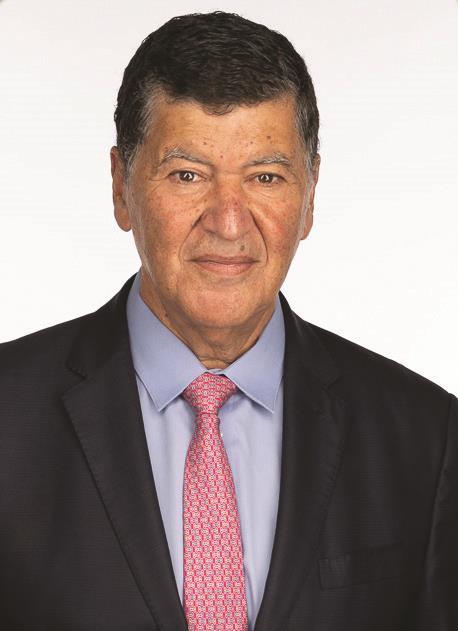
When Elias Zerhouni, a radiologist and biomedical engineer turned entrepreneur and pharmaceutical industry executive, was appointed to lead the US National Institutes of Health (NIH) by former US president George W Bush in 2002, he became the first immigrant to head the agency.
After Zerhouni left the NIH, then-president Barack Obama appointed him as one of the first US presidential science envoys in 2009. From early 2011 until his retirement in mid-2018, Zerhouni was president of global research and development at pharma giant Sanofi. He is currently the president and vice chairman of the biopharmaceutical diagnostics company OPKO Health, based in Florida, and has written a new memoir Disease Knows no Politics.
Chemistry World caught up with Zerhouni to learn about his time running the NIH and his thoughts on the current US administration’s efforts to cut federal spending on research.
What was it like leading the NIH under President Bush?
I was appointed by a Republican administration that committed to doubling the NIH budget, believing that supremacy in science and technology was essential to the US’ national security. Bush was not a scientist, but he knew that healthcare and biomedical research were things that the people valued. He made the commitment and never wavered – doubling the NIH budget allowed the US to maintain its scientific leadership worldwide for the past 25 years.
Fast forward to today and a Republican administration wants to do the exact opposite – they want to halve the budget of the NIH, and they want to stop immigration coming into the US, which includes the best and brights minds in science and technology. It’s a completely different attitude and strategy from the exact same party, which tells you how much society has changed in its perception of science and technology.
What have you seen in Trump’s second term so far?
In his first administration, Trump attempted to reduce the budgets of the NIH and other research agencies, but there was not this ‘impoundment’ strategy of rescinding congressional action. We will find out in the next few months whether this is constitutionally doable – if so, then all bets are off. Congress would be able to pass whatever appropriations it wants and the administration can say: ‘I don’t think we should spend that money and I’m not spending it – challenge me if you want.’
We will realise whether the power of the purse is truly in the hands of Congress or the administration. The fiscal year runs to 30 September, so by then the new budget should be voted on, and Congress should make its recommendations.
The administration wants to cut the NIH budget by 40%, from $48.5 billion to about $27 billion in fiscal year 2026. Is Congress going to go along with that or come out somewhere in the middle? We don’t know.
You grew up in Algeria and moved to the US after medical school – tell us about that journey.
I was born in Algeria – my family lived on the western side of the country, and we moved north to the capital Algiers when I was about two years old. I grew up there in the 1950s when there was a war going on between France and Algeria, in the era of the freedom fighters and the independence movement. So, my childhood was chequered with events that I didn’t understand, but my parents did. Even though schools were interrupted all the time by war, we continued to learn at home in those periods.
I did my schooling and completed medical school in Algiers, and then I became interested in radiology. My uncle was a radiologist, and he showed me the first CT scans obtained in the world by Godfrey Hounsfield, who shared the Nobel Prize in Physiology or Medicine for inventing the CT scanner.
Radiology was the perfect match between math, physics, biology and medicine, and I fell in love with it. After medical school, I went to the US in 1975 to attend Johns Hopkins University Medical School and specialised in radiology.
What is your view on the current debate around immigration in the US?
I have an unusual trajectory and journey, but it could only have happened in the US. This country is so great at recognising and supporting talent in a way that is unique in the world. When you look at immigrants and what they do in the US, they could not have done it in their country of origin or any other country.
But the US is only 4% of the world’s population so it doesn’t have the manpower to support that economy without relying on immigration and foreign talent. And that’s what worries me, the almost rejection of foreign talent as a bad thing – when it was key to the economic success of the US.
What do you make of President Trump’s budget proposal for 2026?
It’s not just dismal, it’s a carnage. It will create havoc and destruction. Budgets for science agencies are not subsidies – they are investments in the future. The investment by the federal government in basic research across all fields has real value, and that work is done by people, not machines. You cannot create widgets of basic research, so you must fund people.
Once you cut a budget by a billion dollars, for example, you lose about 7000 or 8000 scientists. So, are you going to have the soldiers to fight the battle of science and technology that is now raging around the world? That, to me, is the real damage that is going to happen if this budget is enacted, which I hope it isn’t.
This interview has been edited for clarity and brevity.





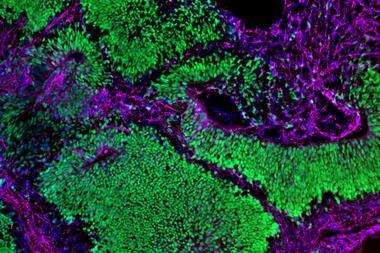
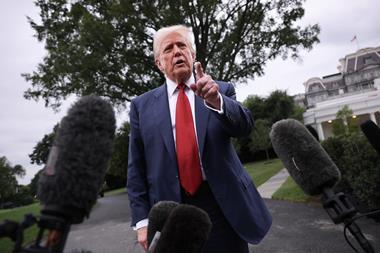
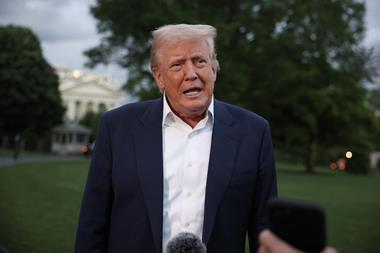

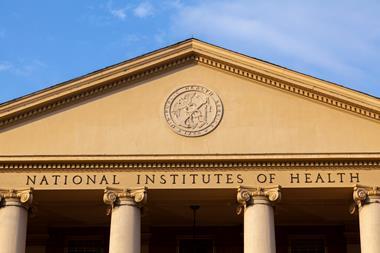







No comments yet